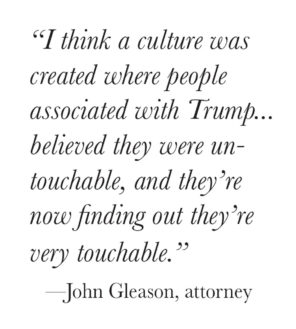
Mayor Michael Hancock and Chicago Mayor Lori Lightfoot introduced their National Nonpartisan Conversation on Voter Rights through a virtual press conference on Oct. 6. Hancock said a “tidal wave of voter suppression bills introduced in 49 states were an attempt to pack and crack people of color through gerrymandering to dilute their voices in elections.“ Front Porch photo by Christie Gosch
Since 2020—a year that saw a once-in-lifetime pandemic and a contested presidential election—nearly all states have introduced or passed election legislation. Politicians and advocates on the left claim new laws are a way to further suppress already disenfranchised communities of color while politicians and advocates on the right claim increased scrutiny is needed to restore faith in an election system that became upended, inviting voter and election fraud.
Governor Jared Polis Signs Eight Election Bills into Law
Since the beginning of Colorado’s General Assembly in January, Gov. Jared Polis has signed eight voting and election bills into law including one that will increase access for voters with disabilities and one that will make it easier for people whose primary language is not English to access ballot information in their own language. Other bills titled, “Colorado Ballot Signature Verification Act,” “Election Integrity and Voter Accuracy,” and “Improve Public Confidence Election Validity”—all sponsored by Republicans—failed to make it into law. A complete list of bills introduced during the 2021 legislative session concerning election laws and redistricting can be found on the Colorado Legislature’s website here.
Mayors Hancock and Lightfoot to Co-Chair National Nonpartisan Conversation on Voter Rights
In Denver, Mayor Michael Hancock, teamed with Chicago Mayor Lori Lightfoot to host the National Nonpartisan Conversation on Voter Rights at the downtown Denver Sheraton on October 21-23.

John Gleason said, “Colorado has one of the best regulatory systems” for disciplining lawyers. Photo courtesy of John Gleason
Hancock said, “It was exciting to see a state like California implement a universal vote-by-mail ballot….and shocking to learn that legislators in 49 states were working hard introducing more than 400 bills…with expansive provisions to restrict access to voting. Eighteen [states] have already enacted laws that will make it harder for Americans to vote. It is the goal of the National Conversation to end gerrymandering, ensure safe access to the ballot box, prevent partisan efforts to diminish voter access, and arm participants with the tools they need to reverse these restrictions.”
The lineup for the Nonpartisan Conversation on Voter Rights—which included big names such as former U.S. Attorney General Eric Holder, Senator Amy Klobuchar, and keynote speaker Magic Johnson did not include anyone from the Republican Party.
Colorado Attorneys Alleging Election Fraud Sanctioned in Federal Court
Since the contested presidential election, lawyers claiming election fraud have been sanctioned throughout the country. In August, a federal judge sanctioned two Colorado attorneys, Ernest Walker and Gary D. Fielder. The partners, who filed a class-action lawsuit claiming widespread election fraud, were seeking $1,000 damages on “behalf of every American voter.” Magistrate Judge N. Reid Neuriter, who called the suit “disorganized and fantastical” and “litigation by  cut and paste,” ordered them to pay the attorney fees and expenses for the defendants, which include leaders from several states, Dominion Voting Machines, and Facebook CEO Mark Zuckerburg. On their website, Walker and Fielder discuss next steps including their appeal. Walker says, “If you take a look at the judge’s ruling, it becomes pretty evident that the court looked at the facts as parroted by the mainstream media as opposed to facts that were actually admitted into court.” Fielder says, “The judge wants to sanction us specifically to send the message for other parties like our clients and other attorneys like us to not bring any lawsuits alleging election fraud.”
cut and paste,” ordered them to pay the attorney fees and expenses for the defendants, which include leaders from several states, Dominion Voting Machines, and Facebook CEO Mark Zuckerburg. On their website, Walker and Fielder discuss next steps including their appeal. Walker says, “If you take a look at the judge’s ruling, it becomes pretty evident that the court looked at the facts as parroted by the mainstream media as opposed to facts that were actually admitted into court.” Fielder says, “The judge wants to sanction us specifically to send the message for other parties like our clients and other attorneys like us to not bring any lawsuits alleging election fraud.”
Colorado attorney, John Gleason, says, “Colorado has one of the best regulatory systems in the country. In Colorado, the State Supreme Court regulates attorneys, judges, and magistrates. For 14 years, Gleason worked for the State Supreme Court investigating lawyers who brought frivolous cases. “Every lawyer can be disciplined for filing lawsuits without a factual or legal basis,” says Gleason. Sanctions can include censure, suspension, disbarment, or being banned from ever filing a case within the state again. And, of course, some of the penalty is that the punishment is public. I think a culture was created where people associated with Trump…believed they were untouchable, and they’re now finding out they’re very touchable. Giuliani [whose license was recently suspended] is an example of that. There’s a lot of delusional people out there.”




0 Comments